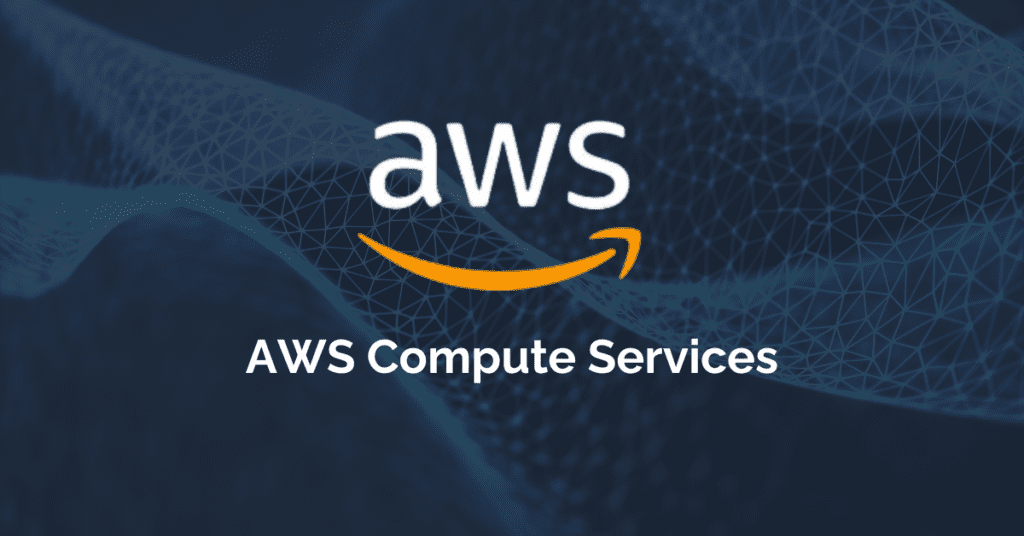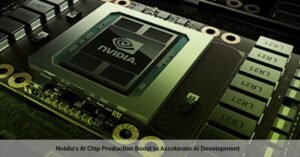
May 22, 2024

In today’s digital landscape, businesses require robust and scalable computing resources to thrive. This is where AWS compute services come in, offering a comprehensive suite of cloud-based solutions that empower you to build, deploy, and manage applications with unmatched flexibility and cost-efficiency.
This article delves into the vast world of AWS compute services, equipping you with the knowledge to choose the perfect option for your specific needs.
IaaS stands for Infrastructure as a Service. It’s a type of cloud computing service that offers on-demand access to essential computing resources like servers, storage, networking, and virtualization. Essentially, you rent the infrastructure you need from a cloud provider like Amazon Web Services (AWS), Microsoft Azure, or Google Cloud Platform instead of having to buy and manage your own physical hardware.
AWS compute services fall under the umbrella of Infrastructure as a Service (IaaS). Essentially, AWS takes care of the underlying infrastructure – servers, storage, networking – allowing you to focus on your core business functionalities. This translates to significant cost savings and eliminates the burden of managing physical hardware.
The beauty of AWS compute services lies in their variety. Here’s a breakdown of some of the most popular options:
Service | Description | Ideal For | Scalability | Management Overhead | Pricing Model |
Amazon EC2 | Virtual machines with customizable configurations | Granular control, mission-critical applications, scientific simulations | High (auto-scaling) | High (full control over infrastructure) | Pay-as-you-go based on instance type, usage, and region |
Amazon ECS & EKS | Container orchestration services | Containerized applications | High (auto-scaling) | ECS: Moderate (control over infrastructure, but orchestration managed) | ECS: Pay-as-you-go based on EC2 instances used. EKS: Pay-as-you-go for EKS service and underlying EC2 instances. |
ECS | More control over underlying infrastructure | Specific infrastructure needs, existing container orchestration tools | High (auto-scaling) | Moderate (control over infrastructure, but orchestration managed) | See above for ECS & EKS |
EKS | Managed Kubernetes service | Simplified container orchestration | High (auto-scaling) | Low (managed service) | See above for ECS & EKS |
Lightsail | User-friendly platform for beginners | Small-scale web applications, getting started with AWS | Moderate (manual scaling) | Low (predefined configurations) | Predictable monthly pricing based on chosen plan |
AWS Lambda | Serverless compute service | Event-driven applications, microservices, short-duration code execution | High (auto-scaling) | Low (serverless, no infrastructure management) | Pay-per-execution based on memory usage and duration |
AWS Batch | Batch processing management | Large-scale data processing, scientific computing | High (auto-scaling) | Moderate (managed service, but some configuration required) | Pay-as-you-go based on compute resources used and job queues |
Amazon EC2 Image Builder | Automated VM image creation and maintenance | Consistent and secure deployments of identical VMs | N/A (service for building images) | Low (managed service) | Pay-per-hour based on usage |
AWS Elastic Beanstalk | Easy web application and service deployment | Developers focused on application building | Moderate (auto-scaling groups) | Low (managed service) | Pay-as-you-go based on underlying resources used |
AWS Fargate | Serverless container orchestration | Leveraging containers without managing infrastructure | High (auto-scaling) | Low (serverless, no infrastructure management) | Pay-per-vCPU and memory usage per second |

Choosing the right AWS compute service can feel overwhelming with so many options available. But fear not! By understanding your specific needs, you can navigate the options and pick the perfect service to power your applications. Here’s what to consider:
By carefully evaluating these factors, you can make an informed decision. Remember, there’s no “one size fits all” solution. The ideal service depends on your specific application and requirements.
|
Service |
Description |
Benefits |
Limitations |
Ideal For |
|
Amazon EC2 |
Virtual machines with customizable configurations |
* Granular control over resources * Wide range of instance types for diverse needs * High scalability |
* Requires infrastructure management expertise * Complex setup for beginners * Pay-as-you-go pricing can be unpredictable for fluctuating workloads |
* Mission-critical applications * Scientific simulations * Developers needing full control |
|
Amazon ECS & EKS |
Container orchestration services |
* Efficient container management * Scalable deployments * Improved developer productivity (EKS) |
* ECS: Requires some infrastructure management * EKS: Learning curve for Kubernetes |
* Containerized applications * Organizations with existing container workflows (ECS) |
|
* ECS |
More control over underlying infrastructure |
* Integrates with existing container tools * Flexibility in container scheduling |
* Higher management overhead compared to EKS |
* Specific infrastructure requirements * Advanced container users |
|
* EKS |
Managed Kubernetes service |
* Simplified container orchestration * Faster deployments * Reduced operational overhead |
* Less control over underlying infrastructure |
* Organizations seeking managed Kubernetes solution |
|
Lightsail |
User-friendly platform for beginners |
* Predictable pricing * Easy to set up and use * Integrated features like storage and databases |
* Limited scalability options * Fewer instance type choices compared to EC2 * Not suitable for complex workloads |
* Small-scale web applications * Getting started with AWS |
|
AWS Lambda |
Serverless compute service |
* Cost-effective for short-duration tasks * Automatic scaling * No server management required |
* Limited control over execution environment * Cold start latency for infrequently invoked functions * Vendor lock-in |
* Event-driven applications * Microservices * Short-duration code execution |
|
AWS Batch |
Batch processing management |
* Efficiently handles large-scale jobs * Scalable for high throughput workloads * Integrates with other AWS services |
* Requires configuration for job scheduling * Not ideal for real-time processing |
* Large-scale data processing * Scientific computing * Batch processing workloads |
|
Amazon EC2 Image Builder |
Automated VM image creation and maintenance |
* Consistent and secure VM deployments * Improved deployment speed * Reduced manual effort |
* Limited customization options compared to manual image creation * Additional cost for the service |
* Organizations deploying identical VMs at scale * Maintaining secure and up-to-date VM images |
|
AWS Elastic Beanstalk |
Easy web application and service deployment |
* Simplifies deployment process * Auto-scaling for web applications * Integrates with various AWS services |
* Limited control over underlying infrastructure * Not suitable for complex deployments |
* Developers focused on rapid application deployment * Web applications with predictable scaling needs |
|
AWS Fargate |
Serverless container orchestration |
* Simplifies container management * Automatic scaling * No infrastructure provisioning required |
* Higher cost compared to ECS for long-running containers * Less control over container environment |
* Organizations seeking serverless container orchestration * Developers familiar with containerized applications |
hile AWS offers a vast array of services, navigating the landscape can be daunting. Partnering with an experienced AWS managed service provider (MSP) can significantly enhance your cloud journey. An MSP can provide:
By leveraging the expertise of an AWS MSP, you can unlock the full potential of AWS compute services and focus on what matters most – building and running successful applications.
AWS compute services provide a powerful and versatile toolkit for building, deploying, and managing applications in the cloud. With a deep understanding of your requirements and the right guidance, you can harness the power of AWS to achieve unparalleled agility, scalability, and cost-efficiency. So, embark on your cloud journey today and unlock the potential of AWS compute services!








@2023-2024-All Rights Reserved-JustAiTrends.com